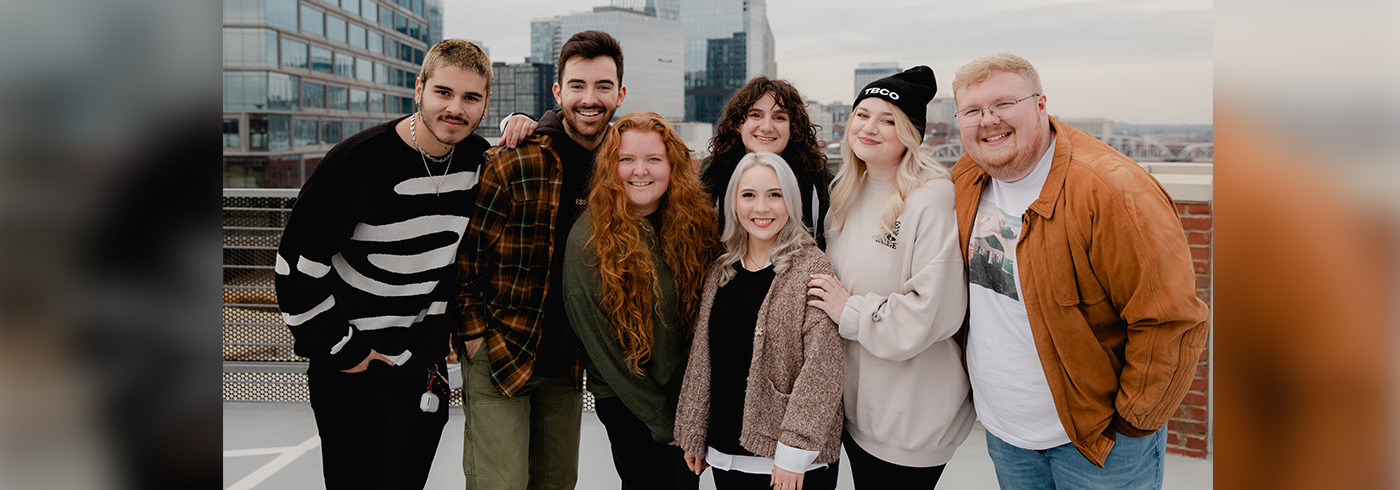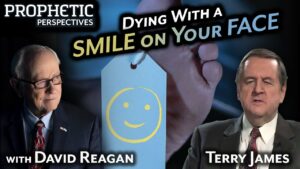Gaining Experience from Day One
 Southeastern University extension site students get hands-on practical training in church settings.
Southeastern University extension site students get hands-on practical training in church settings.
LAKELAND, Florida — A quarter century ago when Doug R. Witherup graduated from Southeastern University in Lakeland, Florida, he didn’t start on the road to ministry until after graduation, when he secured an internship at Multiply Church in Concord, North Carolina.
These days, under Southeastern’s extension site program, students don’t need to wait until graduation for real-life ministry training. Multiply, the megachurch where Witherup now serves as lead pastor, is one of 203 extension sites of Southeastern.
Fifty students from throughout the Carolinas are enrolled at Multiply’s SEU Carolina campus. The students meet for classes during weekdays. They also gain course credit for the 12 hours per week they volunteer for ministry during church meeting times. In all, students graduate with at least 1,200 hours of documented experience in their practicum.
“These students are doing an internship from day one,” says Witherup, 48. “They are getting not only top-of-the-line education, but also hands-on experience.”
There also is a major financial benefit to students enrolled in SEU’s extension plan.
“Extension sites are a way we can deliver education in a way that is accessible, affordable, and experiential,” says Southeastern University President Kent J. Ingle, 60. “It can cut the cost of education by two-thirds.”
Extension students who qualify for a federal Pell grant, which doesn’t have to be repaid, can limit their annual tuition bill to only around $2,000, Ingle says.
Meghan L. Griffin, Southeastern’s provost and chief academic officer, oversees the university’s external programs. She notes that 30 of the 203 sites — most located in medium or large churches — have joined in the 2022-23 school year alone.
Altogether, there are 2,078 students — more than one in five of Southeastern’s overall numbers — enrolled through extension sites. One-fourth of the extension sites are affiliated with the AG.
“Extension site tuition costs less because students don’t have to pay for brick and mortar campus infrastructure or student life experiences,” Griffin says. “The cost is actually less than online classes.”
Griffin says extension sites are gaining in popularity in the wake of isolated learning during the heyday of COVID-19. The extension sites provide a sense of community belonging not available with online-only classes, she says.
While the extension site course content is the same everywhere, Griffin says the locale distinguishes the education.
“The ministry experience is unique, depending on the site,” says Griffin, 40. “While course and program outcomes are consistent, the learning experience in rural Georgia will be different than one in urban California.”
ON-SITE LEARNING
Multiply in North Carolina has been part of the program since 2017. Most students are from the Greater Charlotte area. Although all attend classes at a renovated shopping center owned by Multiply, for the practicum, the students serve in a variety of churches in the region in children’s, youth, worship, and other ministry roles.
SEU Carolina employs a full-time site director, full-time admissions counselor, and a part-time academic officer, who oversees the professors. Some of the teachers serve on the church staff at Multiply; others are from elsewhere in the community. Around 80% of the instruction is face-to-face, with the rest via remote learning from the main campus in Lakeland.
Witherup, who went on to earn master’s and doctoral degrees while working as youth and associate pastor at Multiply, says 13 graduates of SEU Carolina are now involved in full-time ministry at Multiply and other churches.
According to Witherup, SEU Carolina has helped build unity among congregations in the areas. He also says the influx of young adult students has energized Multiply.
RESIDENCY PROGRAM PLANS
Beginning in 2024, Southeastern will have 10 regional sites at which students will be able to do a two-year residency. The regional sites will have larger enrollments (50-60 students) and more professors than the typical location. The first pilot program will be at Northplace, an AG megachurch pastored by Bryan Jarrett in Sachse, Texas.
“Students will serve a residency at the churches and gain hands-on experience as paid staff members,” says Michael A. Steiner, 30, vice president for innovation and communication, a new position at Southeastern.
Griffin has completed a redesign of all traditional education programs at Southeastern. As such, all degrees now require a standard 120 credit hours and integrate what Southeastern calls practicum courses into every degree path. These courses enable students to earn college credit for work done on the job in the field of their chosen major.
“This gives people credit for competency beyond tests and grades,” Griffin says. “A lot of returning adults want content this way, learning at their own pace, and credit for what they’ve learned outside the classroom. Competency-based education more accurately measures what a student is learning in and outside of class.”
Southeastern also has 1,323 students via academic partnerships not tied to a particular location. Many of these are home-schooled.
These days, under Southeastern’s extension site program, students don’t need to wait until graduation for real-life ministry training. Multiply, the megachurch where Witherup now serves as lead pastor, is one of 203 extension sites of Southeastern.
Fifty students from throughout the Carolinas are enrolled at Multiply’s SEU Carolina campus. The students meet for classes during weekdays. They also gain course credit for the 12 hours per week they volunteer for ministry during church meeting times. In all, students graduate with at least 1,200 hours of documented experience in their practicum.
“These students are doing an internship from day one,” says Witherup, 48. “They are getting not only top-of-the-line education, but also hands-on experience.”
There also is a major financial benefit to students enrolled in SEU’s extension plan.
“Extension sites are a way we can deliver education in a way that is accessible, affordable, and experiential,” says Southeastern University President Kent J. Ingle, 60. “It can cut the cost of education by two-thirds.”
Extension students who qualify for a federal Pell grant, which doesn’t have to be repaid, can limit their annual tuition bill to only around $2,000, Ingle says.
Meghan L. Griffin, Southeastern’s provost and chief academic officer, oversees the university’s external programs. She notes that 30 of the 203 sites — most located in medium or large churches — have joined in the 2022-23 school year alone.
Altogether, there are 2,078 students — more than one in five of Southeastern’s overall numbers — enrolled through extension sites. One-fourth of the extension sites are affiliated with the AG.
“Extension site tuition costs less because students don’t have to pay for brick and mortar campus infrastructure or student life experiences,” Griffin says. “The cost is actually less than online classes.”
Griffin says extension sites are gaining in popularity in the wake of isolated learning during the heyday of COVID-19. The extension sites provide a sense of community belonging not available with online-only classes, she says.
While the extension site course content is the same everywhere, Griffin says the locale distinguishes the education.
“The ministry experience is unique, depending on the site,” says Griffin, 40. “While course and program outcomes are consistent, the learning experience in rural Georgia will be different than one in urban California.”
ON-SITE LEARNING
Multiply in North Carolina has been part of the program since 2017. Most students are from the Greater Charlotte area. Although all attend classes at a renovated shopping center owned by Multiply, for the practicum, the students serve in a variety of churches in the region in children’s, youth, worship, and other ministry roles.
SEU Carolina employs a full-time site director, full-time admissions counselor, and a part-time academic officer, who oversees the professors. Some of the teachers serve on the church staff at Multiply; others are from elsewhere in the community. Around 80% of the instruction is face-to-face, with the rest via remote learning from the main campus in Lakeland.
Witherup, who went on to earn master’s and doctoral degrees while working as youth and associate pastor at Multiply, says 13 graduates of SEU Carolina are now involved in full-time ministry at Multiply and other churches.
According to Witherup, SEU Carolina has helped build unity among congregations in the areas. He also says the influx of young adult students has energized Multiply.
RESIDENCY PROGRAM PLANS
Beginning in 2024, Southeastern will have 10 regional sites at which students will be able to do a two-year residency. The regional sites will have larger enrollments (50-60 students) and more professors than the typical location. The first pilot program will be at Northplace, an AG megachurch pastored by Bryan Jarrett in Sachse, Texas.
“Students will serve a residency at the churches and gain hands-on experience as paid staff members,” says Michael A. Steiner, 30, vice president for innovation and communication, a new position at Southeastern.
Griffin has completed a redesign of all traditional education programs at Southeastern. As such, all degrees now require a standard 120 credit hours and integrate what Southeastern calls practicum courses into every degree path. These courses enable students to earn college credit for work done on the job in the field of their chosen major.
“This gives people credit for competency beyond tests and grades,” Griffin says. “A lot of returning adults want content this way, learning at their own pace, and credit for what they’ve learned outside the classroom. Competency-based education more accurately measures what a student is learning in and outside of class.”
Southeastern also has 1,323 students via academic partnerships not tied to a particular location. Many of these are home-schooled.

